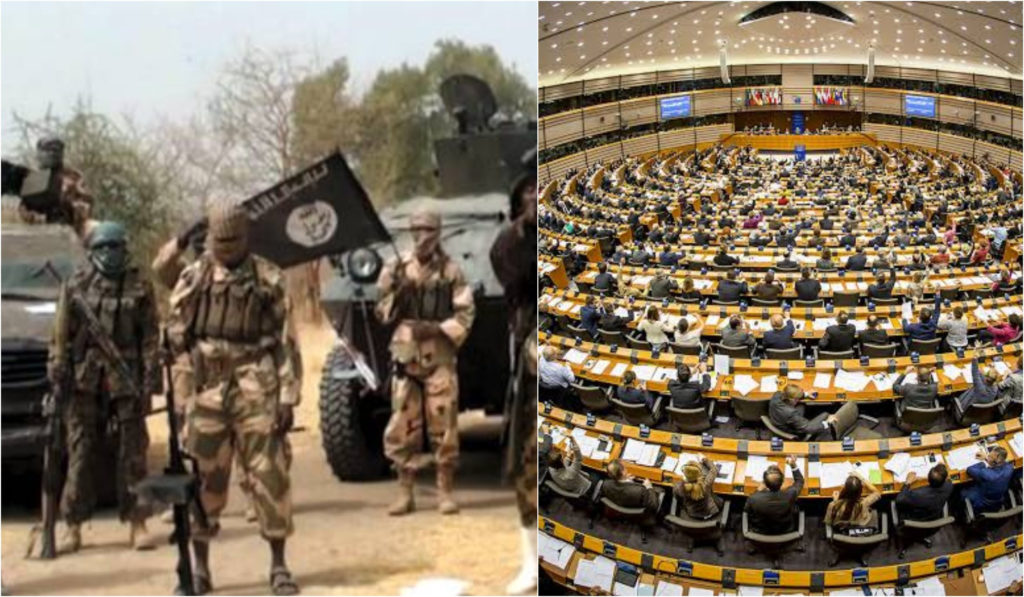Share this
European parliament, the legislative branch of the European Union has stated that there’s been no progress in the fight against Boko Haram.
In its resolution on January 16, 2020, the group of 28 countries that operates as a cohesive economic and political block lamented over the deteriorating security situation in Nigeria.

The group which decried an alleged ill-treatment of children detained in military facilities, reminded the Nigerian government of its obligation to protect the rights of children and to ensure protection and provide care to those affected terrorism or conflict.
It also asked the Nigerian government to allow UN’s access to its military detention facilities and to also sign a formal handover protocol to ensure that children detained the military are quickly transferred to appropriate child protection authorities.
The parliament said it;
“Deplores the terrorist attacks which have taken place in the country; reiterates its concern about the protracted crisis in Nigeria and the volatile security situation in the north-east, and strongly condemns the repeated violations of human rights, international and humanitarian law, whether based on religion or ethnicity.
“Condemns in particular the recent increase in violence against ethnic and religious communities, including the targeting of religious institutions and worshippers.
“Deplores that progress has stalled in the fight against Boko Haram, ISWAP and the increased occurrence and severity of suicide attacks and direct attacks against military positions; recalls that Nigeria’s President Buhari was re-elected in 2019 on the promise of defeating the violent extremism promoted Boko Haram and other terror groups, and urges the President to implement his campaign promises.
“Urges the Nigerian authorities to guarantee respect for human rights in the country, and to protect the civilian population from terrorism and violence; insists that such efforts must be conducted in full accordance with respect for human rights and the rule of law, in line with the country’s international obligations.
“Considers any form of extermination of human beings or ethnic cleansing barbaric and a crime against humanity; urges the Nigerian Government to address the root causes of violence ensuring equal rights for all citizens and non-discrimination legislation; insists, in this regard, on the need to further promote inter-religious dialogue and the peaceful coexistence of citizens irrespective of their religion, engaging with all relevant stakeholders, including the Nigerian Inter-religious Council.”
